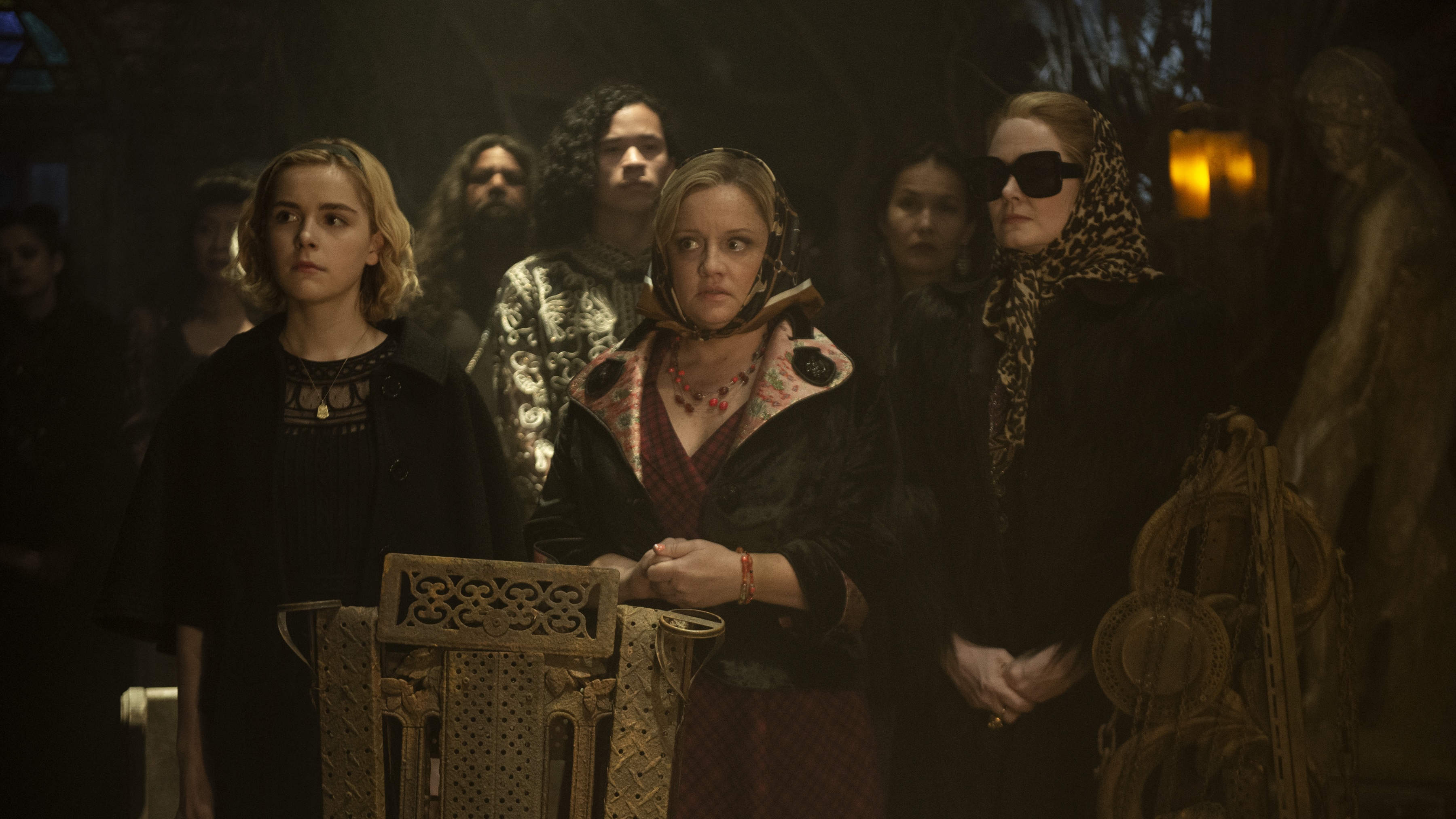‘Chilling Adventures of Sabrina’ Stars Talk Family as ‘Heart’ of Show Steeped in Feminism
By Amber Dowling
LOS ANGELES (Variety.com) – From the classic comics, to the ’90s comedy, to the more recent chilling adventures in a demon-ridden world, Sabrina Spellman has always relied on her roots to guide her through the angsty years of being a teenaged witch. This means that when Netflix’s take on the famous Archie character drops on Oct. 26, her aunties Hilda (Lucy Davis) and Zelda (Miranda Otto) — along with her cousin Ambrose (Chance Perdomo) — are an integral part of the (broomstick) ride.
“The heart of the show is those kitchen scenes, where Ambrose is making some kind of witty comment and Zelda is freaking out, and Sabrina is just trying to make sense of everything, and Zelda is rolling her eyes,” Sabrina portrayer Kiernan Shipka says. “That dynamic is what we go back to time and time again and in so many ways it really is the heartbeat of the show.”
However, “Chilling Adventures of Sabrina” branches out from family drama to tackle feminist themes, love-letters to horror greats like “The Exorcist” and “Rosemary’s Baby” and external conflicts with other witches and the one who controls them all, the Dark Lord.
In the pilot alone, Sabrina, a half-witch, half-mortal whose parents are long dead, grapples with her upcoming 16th birthday and the subsequent pact she’ll sign renouncing her mortal life and everything that comes with it. It’s a tall order for a well-adjusted teen in love, especially given some of the shadier, male-controlled aspects of the overall deal. Yet it’s a deal her centuries-old, guardian-aunts insist on her making, despite their own feminist ideals.
“Within the Church of Night the generations certainly add different aspects to the story,” Otto says. “Zelda and Hilda have lived for a long time and have different approaches on how to deal with the institutions they’re in and the contradictions of the church, whereas Sabrina is coming into this for the first time and won’t stand [for certain things].”
That inward versus outward brand of feminism is a driving theme that carries over early on in the series. Otto sees Zelda as working to “invoke change from within,” while Davis likens Hilda to someone who “grew up in a religious household but hasn’t necessarily questioned it.” Yet it’s those collective experiences that are helping them raise a teenage girl who has found her own voice, as Sabrina confronts sexism at her mortal high school and resists signing away her free will to the Dark Lord.
“Sabrina is a bada– and she was raised to believe that,” Shipka says. “But as much as she was brought up by her aunts, she has very strong beliefs that are developing and are different from theirs. It’s interesting to see all of these women with very different relationships to their covens, their worlds, themselves. It’s super multi-dimensional in that way.”
It’s those varying world views and approaches that propel the drama as the episodes unfold, but it’s also what makes the family coven stronger as external forces descend. In order for the Spellmans to overcome a long list of mortal and supernatural enemies and to forge their own path ahead, it’s the coming together of multiple generations that dictates success.
“In a lot of ways Sabrina’s mission is to change the system, but that patriarchy is something that is so ingrained in beliefs and upbringing that it’s not met with much resistance,” Shipka says. “Everything seems to be working to a certain extent which is why the coven has operated as it has over the years, but in a lot of ways we portray a deeper frustration with that. It’s not all sunshine and rainbows and it cannot run smoothly like that forever. How these women deal with it and tackle it in different ways develops and unfolds and I’m really happy with where the story goes.”

